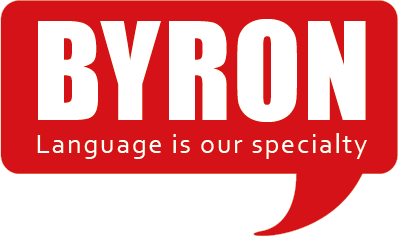Collaborating with War Crimes? The BBC’s Bias Against Israel
The BBC’s coverage of the Israeli-Palestinian conflict has come under scrutiny, with allegations of bias against Israel. Critics have accused the broadcaster of showing a long-standing bias against Israel in its newsroom, leading to a lack of balance in its reporting. The Jewish community has raised concerns about the BBC’s coverage, with complaints coming from both inside and outside the community. These allegations have raised fresh questions about bias in the BBC’s coverage of the conflict. Words can kill in many ways. Public opinion is highly influenced by the media. Violence can occur in real life when words in the media, social media and academic are distorting reality. In this article I will explore these and other relevant accusations towards the BBC.
The organization Honest Reporting proved that freelance photographers working with Reuters, AP, CNN, and the New York Times may have had prior knowledge of the Hamas attacks on October 7, 2023. Their website raised ethical concerns about the photographers’ association with the news outlets, but all four outlets denied the claims.
The BBC faced criticism for refusing to refer to Hamas as “terrorists,” despite the government’s designation of Hamas as a proscribed terrorist organization. Following Hamas’ invasion of Israel on October 7, the BBC repeatedly referred to the organization as “freedom fighters,” “gunmen,” or “militants” rather than terrorists, which angered many viewers. This decision was defended by the BBC’s World Affairs editor, John Simpson, who described the term “terrorism” as a “loaded word.” However, after facing backlash, the BBC announced a policy change and agreed to refer to Hamas as a “proscribed terrorist organization” by the UK government and others, or simply as Hamas.
The BBC was criticized for being quick to blame the IDF for incidents such as the bombing of the Al Ahli Arab Hospital, without sufficient evidence. In the immediate aftermath of the bombing, the BBC, like other news outlets, was swift to attribute the blast to the IDF, citing reports from the Hamas-run Gaza Health Ministry. This led to accusations of biased reporting and the spread of misinformation. The BBC later admitted that it was wrong to speculate about the hospital blast and issued an on-air apology, acknowledging the need for more careful and balanced reporting in the midst of the conflict.
Moreover, the BBC was criticized for misquoting reports to suggest that Israel was targeting medical staff. In a report on the Israeli operation at Gaza’s Al Shifa hospital, a BBC news presenter misquoted a Reuters report, stating that Israeli forces were “targeting people including medical teams as well as Arab speakers.” However, the original Reuters report had mentioned that the medical teams and Arabic speakers were part of the Israeli Defense Forces who had been sent into the hospital to assist patients and staff. The BBC later issued an apology for the error, acknowledging that it fell below their usual editorial standards.
One example of a long-standing bias against Israel in the BBC newsroom, as claimed by a former BBC journalist, is the case of a report from November 2021 about a group of Jewish students who were subjected to an antisemitic attack while traveling through the center of London on a privately hired bus during Hanukkah. The BBC’s coverage reported that an anti-Muslim slur had been heard from inside the bus, which was later escalated to a complaint to Ofcom, eventually ruling that the BBC had made “significant editorial failings”.
Keshet TV’s satirical show “Eretz Nehederet” parodied the BBC for its perceived pro-Palestinian bias in the ongoing Israel-Hamas conflict. The skit, akin to “Saturday Night Live,” ridiculed the BBC’s reporting on Hamas’s claim that Israel had bombed Gaza’s al-Ahli hospital, which sparked mass protests. The show depicted a BBC anchor and correspondent making light of the situation, with the anchor expressing a desire for more deaths and the correspondent presenting a video from Hamas as evidence, only to later admit that Israel was not responsible. The parody satirized the BBC’s alleged lack of impartiality in its coverage of the conflict.
There have been some accusations of bias against the BBC, with a few claiming that the organization has shown a pro-Israel bias in its coverage of the Israeli-Palestinian conflict. However, these accusations have been the subject of debate, and the BBC has denied the allegations, stating that it has highlighted the devastating human cost for civilians in both Gaza and Israel during its coverage of the conflict.
The BBC, as a major news outlet, has a responsibility to present impartial and accurate coverage of complex issues like the Israeli-Palestinian conflict. Moving forward, the BBC should strive to address any valid concerns and demonstrate a commitment to neutrality through factual reporting, diverse perspectives, and transparent editorial processes. Only then can the BBC ensure its viewers receive a comprehensive understanding of this ongoing conflict.
